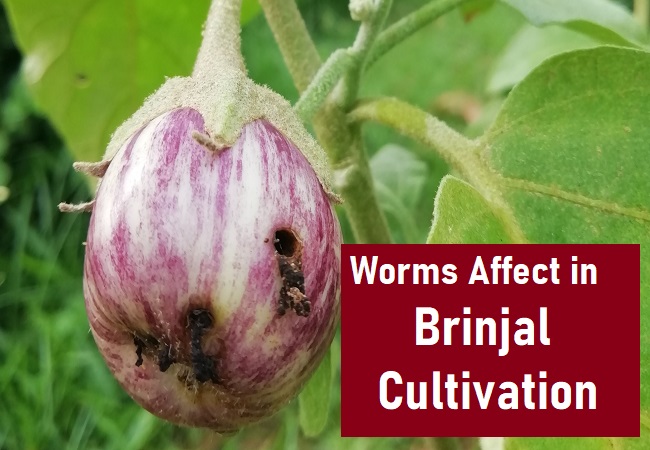Worms can have a significant impact on Brinjal cultivation in Tamil Nadu. They can cause various problems and hinder the growth and productivity of Brinjal plants. Here are some ways in which worms can affect Brinjal cultivation:
-
Root Damage: Certain types of worms, such as root-knot nematodes, can infest the soil and attack the roots of Brinjal plants. They form knots or galls on the roots, which restrict the uptake of nutrients and water by the plants. This can lead to stunted growth, wilting, and reduced yield.
-
Leaf Feeding: Caterpillars and other leaf-feeding worms can consume the leaves of Brinjal plants, causing defoliation. When the leaves are extensively damaged, the plants lose their ability to carry out photosynthesis effectively. This can weaken the plants, reduce their vigor, and affect the overall growth and fruiting.
-
Fruit Damage: Some worms, like fruit borers, can bore into the Brinjal fruits, leading to severe damage. They create tunnels inside the fruits, making them prone to rotting and causing secondary infections. This not only affects the quality of the harvested fruits but also reduces the market value.
-
Disease Transmission: Worms can act as vectors for various plant diseases. They can harbor pathogens and transmit them to Brinjal plants during feeding or through their bodily fluids. This increases the risk of diseases such as bacterial wilt, viral infections, and fungal diseases, further compromising the health and productivity of the plants.
-
Overall Plant Health: Worm infestations can weaken Brinjal plants and make them more susceptible to other stress factors like drought, heat, or other pests and diseases. This can result in a decline in the overall health and vitality of the plants, leading to poor growth, reduced flowering, and lower yields.
To mitigate the negative impact of worms on Brinjal cultivation, farmers in Tamil Nadu employ various pest management strategies. These include the use of chemical pesticides, biopesticides, crop rotation, planting resistant varieties, practicing good sanitation, and adopting integrated pest management (IPM) approaches. Regular monitoring and early detection of worm infestations are crucial for effective control and minimizing the damage caused by worms in Brinjal cultivation.

